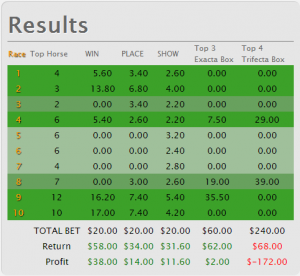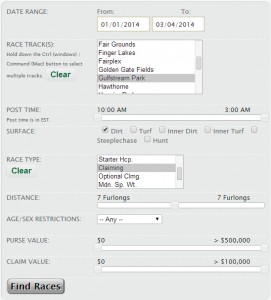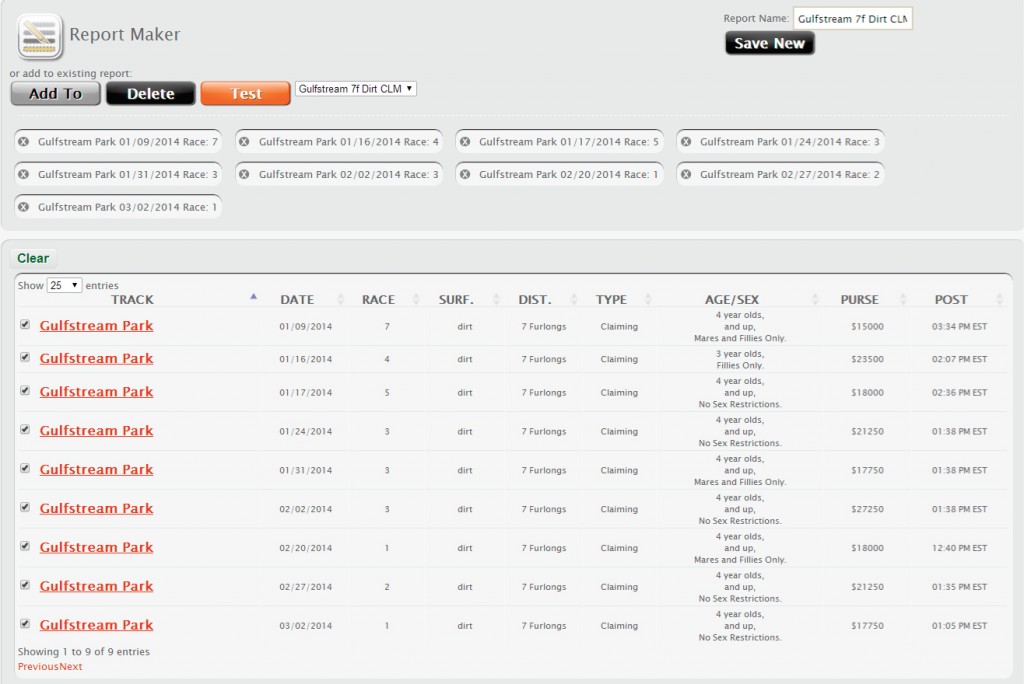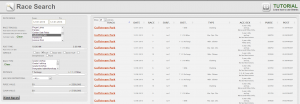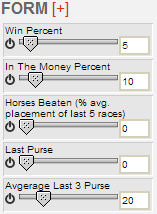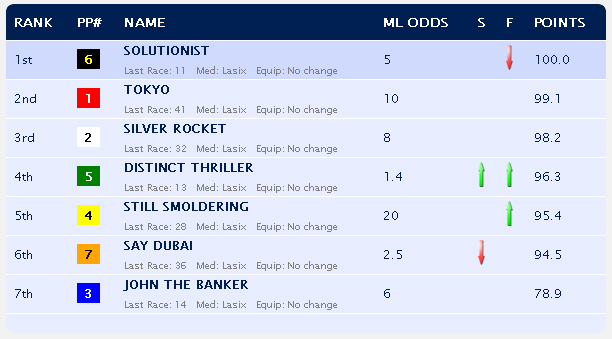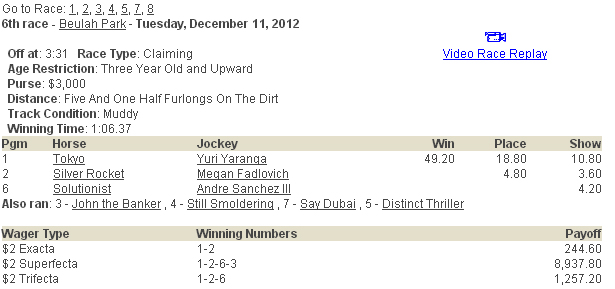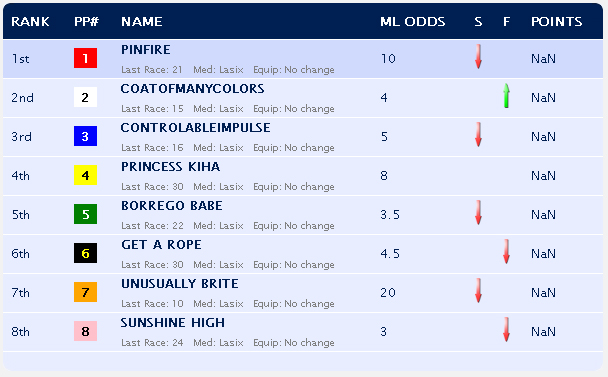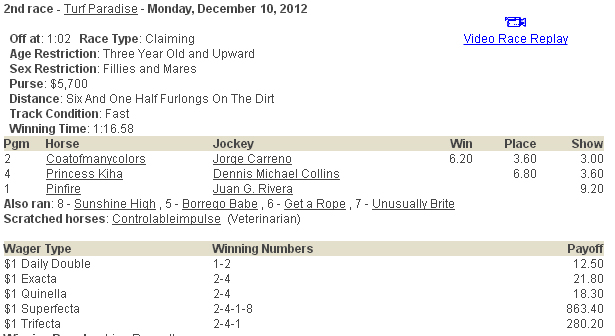We know that Betmix allows you to handicap a race quickly and accurately, but how do you use the results to make exotic bets like trifectas and superfectas?
One of the great advantages of the Betmix handicapping system is the point totals that it returns for each horse after you have applied your mix to the race. It gives you a very good idea of the number of horses in the race that are contenders. The key to making successful bets is separating the contenders from the pretenders, and we will show you how to do that using Betmix.
In this example we will be handicapping the Dania Beach Stakes at Gulfstream Park on December 15th (9th race). Subscribers can pull that race up in the historic race section, those who have not subscribed will just have to follow along from the screen shots.
The race is for 2-year-olds going 1 mile on the turf, and we will use our Standard Turf Race mix which is available for monthly subscribers to add to their saved mixes in the MixLibrary. When we apply that mix to the race we get the following results: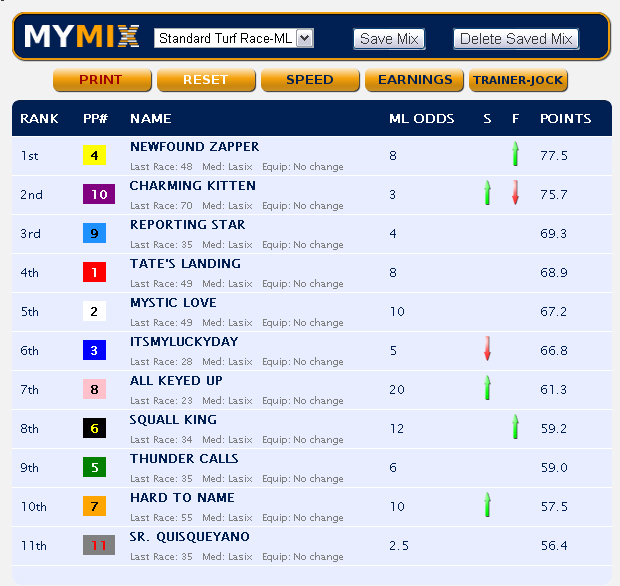
When betting a trifecta or superfecta we want to limit the contenders so that the cost of the bet is reasonable. The rule of thumb that we use is horses that are within 10 points of the leader are "contenders" and those outside of that margin are "pretenders" (for Superfecta bets we would include horses within 15 points of the top ranked horse). In this case, the top ranked horse is #4 Newfound Zapper with 77.5 points. For our 10 point rule we always round down, so any horse that has 67 or more points would be considered a contender in this race. We have 5 horses that qualify, which is a manageable number in a field of this size (the 11 horse scratched, so there are only 10 in the race) if over half the field had been within 10 points of the highest ranked horse we would probably skip the race in terms of betting exotics.
Now that we have our top ranked horse, we must check to see if he is worthy of being the "key" horse in our trifecta bet. He doesn't have a red arrow in the S or F column (for more information about arrows read our post about Declining Speed), his last race was 48 days ago which is acceptable (if it were more than 60 days we would be concerned), and a quick click of the Trainer-Jock button tells us that he is ranked 2nd there, so we can trust that he is well meant for this particular race.
To construct the bet we could simply box the top 5 horses in a $1 Trifecta Box which would cost $60, but we prefer to key the top horse with the others to save a little money.
We structure our bets like this:
$1 Trifecta 4 / 10,9,1,2 / 10,9,1,2 - Cost $12
$1 Trifecta 10,9,1,2 / 4 /10,9,1,2 - Cost $12
$1 Trifecta 10,9,1,2 / 10,9,1,2 / 4 - Cost $12
We invested $36 in the trifecta and put the #4 on top, between, and on the bottom of the other horses that were within 10 points of him in our mix.
Here is the result of the race:
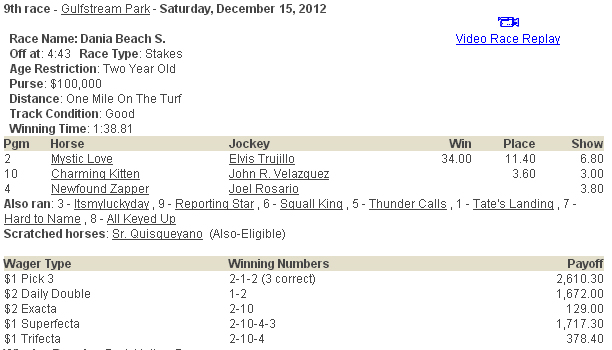
Our key horse, #4 Newfound Zapper ran 3rd, and our 5th ranked horse (#2) went off at 16:1 and won the race resulting in a $378 trifecta for a $1 bet.
One of the many advantages of using Betmix to handicap is that you can accurately look at every race on the card in a matter of minutes. You can find races where you have a reasonable number of contenders and skip the races where the horses are too evenly matched to make an affordable wager. When you create your mixes or use those in the library, you are applying consistent logic to each race using solid handicapping principles. The key to making money betting on horses is all about consistency. Handicap in a consistent manner, and bet in a consistent way.


